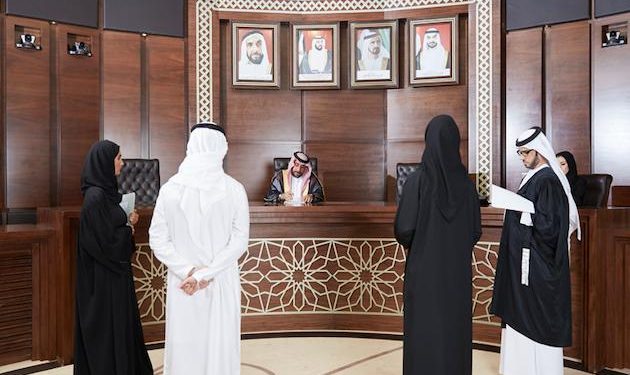- Abu Dhabi, the capital of the United Arab Emirates, has issued a new law related to divorce, inheritance and child custody for non-Muslims
- The 20-article law also introduces the idea of civil marriage, allows wills to be drawn up granting inheritance to anyone chosen, and deals with paternity issues
- These legal changes highlight the efforts of the UAE’s rulers to keep pace with a rapidly changing local society, as well as enhance its profile as a modern destination for western tourists
ABU DHABI, UAE: Abu Dhabi, the capital of the United Arab Emirates, has issued a new law related to divorce, inheritance and child custody for non-Muslims.
On Sunday, WAM reported Abu Dhabi will create a new court to handle such cases, which will be simultaneously conducted in Arabic and English to assist foreigners.
In cases involving child custody, parents will be allowed to share joint custody of their children.
The 20-article law also introduces the idea of civil marriage, allows wills to be drawn up granting inheritance to anyone chosen, and deals with paternity issues.
According to The National newspaper, the Abu Dhabi Judicial Department will provide “a flexible and advanced judicial mechanism for the determination of personal status disputes for non-Muslims.”
Local authorities announced last year that they would overhaul the county’s Islamic personal laws and introduce more liberal regulations, such as allowing unmarried couples to cohabitate, loosening alcohol restrictions and criminalizing “honor killings.”
Abu Dhabi also ended its alcohol license system in September 2020, which will enable Muslims barred from obtaining licenses to drink alcoholic beverages freely.
In September, the UAE announced another plan to stimulate its economy and liberalize residency rules for foreigners, and in January it said it would allow some foreign nationals, which make up some 80 percent of the population, to become citizens.
These legal changes highlight the efforts of the UAE’s rulers to keep pace with a rapidly changing local society, as well as enhance its profile as a modern destination for western tourists.
However, traditional Islamic values are still ingrained in the psyche of the country, which a hereditarily ruled country was long criticized for its suppression of dissent, with political parties and labor unions being banned.
The UAE’s population of some one million Emiratis closely adhere to the government’s dictates.







